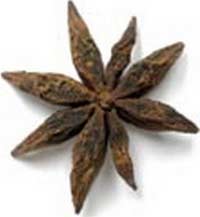Facing the Threat of a Global Pandemic
H5N1 Strikes Europe
 |
Star Anise |
On October 24, health experts from over 50 countries convened in Copenhagen, Denmark to discuss strategies for combating the avian flu outbreak.
In the evening, another meeting took place in Ottawa, Canada, involving ministers and health experts from 30 countries, along with representatives from the World Health Organization (WHO) and the Food and Agriculture Organization (FAO) of the United Nations, aimed at forming a coordinated international front against the pandemic. The world cannot remain idle as avian influenza spreads rapidly day by day.
H5N1, the most virulent avian influenza virus ever recorded, has already claimed the lives of over 60 victims in Asia and has now delivered a shocking blow to Europe, with test results indicating that this virus is now present on both the eastern and western shores of the continent.
Simultaneously, Russian laboratories confirmed that H5N1 had reached Tambov, located 400 kilometers southwest of Moscow, while British laboratories confirmed that a parrot imported from South America that died in quarantine a few days ago carried this highly pathogenic virus.
Asia on High Alert
In Asia, the situation continues to escalate daily. Authorities in Malta have quarantined a shipping container from Taiwan after discovering two dead chickens onboard. Crew members on the vessel are not allowed to disembark while awaiting test results. Malaysian border police intercepted a truck claiming to transport fruit from Thailand but actually containing 12 tons of frozen chicken.
The primary ingredient for producing Tamiflu is shikimic acid, an extract from star anise. For many years, Roche has been sourcing star anise from four provinces in China to produce this medication, a process that can take up to a year. Recently, some have raised alarms that the supply of star anise in these four provinces is insufficient to meet current demand. However, according to Taiwan, which is seeking the rights to produce Tamiflu, the region has alternative sources of star anise. |
In Thailand, the government has declared four provinces—Suphan Buri, Kampheng Phet, Nakhon Pathom, and Kanchanaburi—under strict surveillance. Approximately 900,000 volunteers have been deployed across villages to identify potential cases of flu and implement immediate remedial measures.
Australia Establishes a Buffer Zone
Located in the southern Pacific, Australia has decided to create a 1,000-kilometer “buffer zone” in the northern part of the country in an effort to stop the advance of avian flu. Australian authorities are urgently training personnel in neighboring countries such as East Timor, Papua New Guinea, and Indonesia to detect infected birds and prevent outbreaks. In the Middle East, Israel and Jordan have set up hotlines to exchange information regarding avian influenza…
Hong Kong: “Roche Discriminates”
Regarding the situation with Tamiflu, the medical community in Hong Kong has criticized Swiss pharmaceutical company Roche for being “discriminatory” towards Asia and “unethical.” According to Kwok Ka-ki, a representative of the Hong Kong Legislative Council, while Roche has made some concessions under pressure from the U.S. and the UN, it has deliberately ignored requests from Asia.
Representatives from Hong Kong have suggested that instead of waiting for Western aid, Hong Kong and mainland China should fight for the rights to produce Tamiflu: “We must start producing medication for the region as soon as possible. This way, we can also control prices.”
THUY TUNG (THX, BKP, Reuters, TST)


















































